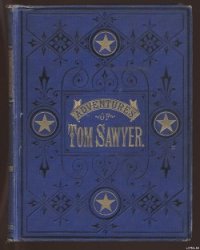Английский язык с Марком Твеном. Принц и нищий (Mark Twain. The Prince and the Pauper) - Twain Mark (читать хорошую книгу полностью .txt) 📗
Hendon's arts (уловки Хендона) all failed with the king (все потерпели неудачу с королем) — he could not be comforted (он не мог быть успокоен), but a couple of women who were chained near him (но пара женщин, которые были прикованы близ него), succeeded better (преуспели лучше). Under their gentle ministrations (с их нежной заботой) he found peace (он нашел покой; to find — найти) and learned a degree of patience (и научился отчасти терпению; degree — степень). He was very grateful (он был очень благодарен), and came to love them dearly (и полюбил их нежно; to come to — прийти к) and to delight in the sweet and soothing influence of their presence (и радоваться приятному и смягчающему влиянию их присутствия). He asked them (он спросил их) why they were in prison (почему они были в тюрьме), and when they said they were Baptists (и когда они сказали, что они были баптистами), he smiled, and inquired (он улыбнулся и спросил):
'Is that a crime (такое ли это преступление) to be shut up for (чтобы быть заключенным за него) in a prison (в тюрьме)? Now I grieve (теперь я скорблю), for I shall lose ye (ибо я потеряю вас) — they will not keep ye long (они не продержат вас долго) for such a little thing (за такую незначительную вещь).'
They did not answer (они не ответили); and something in their faces made him uneasy (и что-то в их лицах сделало его тревожным = взволновало). He said, eagerly (он сказал, с чувством):
'You do not speak (вы не говорите) — be good to me (будьте добры ко мне), and tell me (и скажите мне) — there will be no other punishment (не будет другого наказания)? Prithee (пожалуйста), tell me there is no fear of that (скажите мне, что нет страха = опасности этого).'
They tried to change the topic (они попытались сменить тему), but his fears were aroused (но его страхи были пробуждены), and he pursued it (и он настаивал на этом):
'Will they scourge thee (они отхлещут тебя)? No, no, they would not be so cruel (нет, нет, они не будут так жестоки)! Say they would not (скажи, что они бы не /сделали этого/). Come, they will not (ну, они не сделают), will they (не правда ли: «сделают они»)?'
The women betrayed confusion and distress (женщины выдали смущение и горе), but there was no avoiding an answer (но не было избежания ответа = ответа было не избежать), so one of them said (так что одна из них сказала), in a voice choked with emotion (голосом, сдавленным волнением):
'Oh, thou'lt break our hearts (о, ты разобьешь наши сердца), thou gentle spirit (ты, нежная душа)! God will help us to bear our (Бог поможет нам вынести нашу) —'
'It is a confession (это признание)!' the king broke in (король прервал; to break in — прервать, ворваться). 'Then they will scourge thee (тогда они отхлещут тебя), the stony-hearted wretches (жестокосердные злодеи; stony — каменистый; heart — сердце)! But oh, thou must not weep (но о, ты не должна плакать), I cannot bear it (я не могу вынести этого). Keep up thy courage (собери свою храбрость) — I shall come to my own (я приду к моей собственности = верну себе свое положение) in time to save thee from this bitter thing (вовремя, чтобы спасти тебя от этой горестной вещи), and I will do it (и я сделаю это)!'
When the king awoke in the morning (когда король проснулся; to awake — просыпаться), the women were gone (женщины исчезли; to go — идти, уйти, исчезнуть).
'They are saved (они спасены)!' he said, joyfully (он сказал весело); then added, despondently (затем добавил уныло), 'but woe is me (но горе мне)! — for they were my comforters (ибо они были моими утешителями).'
reverie [`rev?r?], grieve [gri:v], arouse [?`rauz]
This news struck his majesty dumb with amazement, and plunged him into so deep and dismal a reverie that he heard no more of the old man's gossip. He wondered if the 'little urchin' was the beggar-boy whom he left dressed in his own garments in the palace. It did not seem possible that this could be, for surely his manners and speech would betray him if he pretended to be the Prince of Wales — then he would be driven out, and search made for the true prince. Could it be that the court had set up some sprig of the nobility in his place? No, for his uncle would not allow that — he was all-powerful and could and would crush such a movement, of course. The boy's musings profited him nothing; the more he tried to unriddle the mystery the more perplexed he became, the more his head ached, and the worse he slept. His impatience to get to London grew hourly, and his captivity became almost unendurable.
Hendon's arts all failed with the king — he could not be comforted, but a couple of women who were chained near him, succeeded better. Under their gentle ministrations he found peace and learned a degree of patience. He was very grateful, and came to love them dearly and to delight in the sweet and soothing influence of their presence. He asked them why they were in prison, and when they said they were Baptists, he smiled, and inquired:
'Is that a crime to be shut up for in a prison? Now I grieve, for I shall lose ye — they will not keep ye long for such a little thing.'
They did not answer; and something in their faces made him uneasy. He said, eagerly:
'You do not speak — be good to me, and tell me — there will be no other punishment? Prithee, tell me there is no fear of that.'
They tried to change the topic, but his fears were aroused, and he pursued it:
'Will they scourge thee? No, no, they would not be so cruel! Say they would not. Come, they will not, will they?'
The women betrayed confusion and distress, but there was no avoiding an answer, so one of them said, in a voice choked with emotion:
'Oh, thou'lt break our hearts, thou gentle spirit! God will help us to bear our —'
'It is a confession!' the king broke in. 'Then they will scourge thee, the stony-hearted wretches! But oh, thou must not weep, I cannot bear it. Keep up thy courage — I shall come to my own in time to save thee from this bitter thing, and I will do it!'
When the king awoke in the morning, the women were gone.
'They are saved!' he said, joyfully; then added, despondently, 'but woe is me! — for they were my comforters.'
Each of them had left a shred of ribbon (каждая из них оставила лоскут ленты) pinned to his clothing (приколотый к его одежде), in token of remembrance (в знак памяти). He said he would keep these things always (он сказал, что будет хранить эти вещи всегда); and that soon he would seek out (и что скоро он разыщет) these dear good friends of his (этих милых добрых подруг его) and take them under his protection (и возьмет их под свою защиту).
Just then the jailer came in (как раз тогда тюремщик вошел внутрь; to come in — войти внутрь) with some subordinates (с несколькими подчиненными) and commanded that the prisoners be conducted (и приказал, чтобы заключенные были препровождены) to the jail-yard (в тюремный двор). The king was overjoyed (король был очень обрадован) — it would be a blessed thing (это была бы благословенная вещь) to see the blue sky (увидеть голубое небо) and breathe the fresh air (и подышать свежим воздухом) once more (снова). He fretted and chafed at the slowness (он беспокоился и раздражался на медлительность) of the officers (офицеров), but his turn came at last (но его очередь подошла наконец) and he was released from his staple and ordered (и он был освобожден из своей скобы = своих оков и получил приказ; to order — приказывать) to follow the other prisoners (последовать за другими заключенными), with Hendon (с Хендоном).
The court, or quadrangle (площадка, или четырехугольный двор), was stone-paved (был вымощен камнем; to pave — мостить), and open to the sky (и открыт небу). The prisoners entered it (заключенные вошли в него) through a massive archway of masonry (через большую арку каменной кладки), and were placed in file (и были поставлены в шеренгу), standing, with their backs against the wall (стоящие, с их спинами против стены = у стены). A rope was stretched (веревка была протянута) in front of them (перед ними), and they were also guarded by their officers (и они также охранялись своими офицерами). It was a chill and lowering morning (это было морозное и хмурое утро), and a light snow (и светлый снег) which had fallen during the night (который нападал в течение ночи; to fall — падать) whitened the great empty space (выбелил гигантское пустое пространство) and added to the general dismalness (и прибавил к общей мрачности; dismal — мрачный; гнетущий, тягостный; зловещий) of its aspect (его вида). Now and then (порой: «сейчас и тогда») a wintry wind shivered through the place (ледяной ветер дрожал = проносился по этому месту) and sent the snow eddying (и закручивал снег маленькими вихрями; to send — посылать; to eddy — завихряться) hither and thither (сюда и туда).




